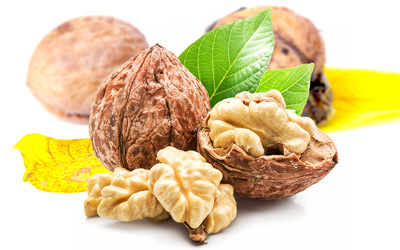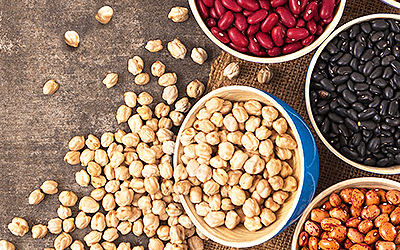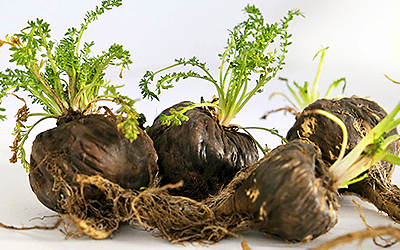It has been suggested that peanuts and tree nuts help lower inflammation, and that nut consumption may prolong life but, besides few animal studies, little has been said about how nut consumption can affect human gut flora and metabolic functions.1,2 This randomized human trial, specifically based on walnut intake, has arrived to quite interesting conclusions, which have been published in The Journal of Nutrition.
The Study
Based on a preliminary study, which reported changes in the gastrointestinal microbiome of mice that were subjected to a walnut-rich diet, a group of researchers led by Hannah Holscher, assistant professor of Food Science and Human Nutrition at the University of Illinois at Urbana-Champaign, investigated the relationship between walnuts and digestion, and whether the consumption of these tree nuts has a significant impact in adult humans gastrointestinal health.
The clinical trial included 18 female and male individuals, with an average age of 53 years old and a body mass index of 28.8. As part of their regular diet, they were randomly supplemented with either 42 grams (a handful) of walnuts or none during two periods of three weeks, with a washout week in between. Changes in their gastrointestinal flora, bile production, and metabolic markers were monitored through fecal and blood samples at the end of each period of study, in order to determinate whether and to what extend walnut supports digestive health.
The Results
The tests realized during the washout period and trial weeks revealed differences in the gut microbiota of the volunteers. After consuming walnut every day during three weeks, the presence of gram-positive bacteria, mainly Faecalibacterium, Clostridium, Dialister, and Roseburia grew 160% higher compared with the washout week, when it registered only 46%.
On the other hand, there was a difference of 38 to 16% in other positive strains, namely Ruminococcus, Dorea, Oscillospira, and Bifidobacterium. All these microorganisms are commonly known as probiotics, and not only stimulate the digestive function and encourage proper bowel movements, but also protect the gastrointestinal system against harmful pathogens.
Secondary bile acids, which are metabolized during the digestive process and produce diarrhea when present in excess, were reduced in 45 and 25% respectively. Finally, cholesterol concentrations were 7% after walnut consumption and 6% after the washout week.
What Does this Mean?
During the trial, the consumption of walnut positively influenced both composition and function of the human gut flora, increasing the presence of probiotic bacteria and reducing pro-inflammatory substances, such as secondary bile acids and LDL cholesterol.
These findings further corroborate the key role of walnuts for digestive health and highlight the importance of regularly consuming these tree nuts as part of a healthy, balanced diet.
Other foods that promote a healthy gastrointestinal flora are fermented cabbage (chukrut), yacon, yogurt, and soy-based preparations, such as tempeh.
Sources
- The Journal of Nutrition, Walnut Consumption Alters the Gastrointestinal Microbiota, Microbially Derived Secondary Bile Acids, and Health Markers in Healthy Adults: A Randomized Controlled Trial, 2018
Footnotes:
- International Journal of Epidemiology. (2015). Relationship of tree nut, peanut and peanut butter intake with total and cause-specific mortality: a cohort study and meta-analysis. Retrieved August 27, 2020 from https://academic.oup.com/ije/article/44/3/1038/631474
- American Journal of Clinical Nutrition. (2016). Associations between nut consumption and inflammatory biomarkers. Retrieved October 9, 2020 from https://academic.oup.com/ajcn/article/104/3/722/4564733





